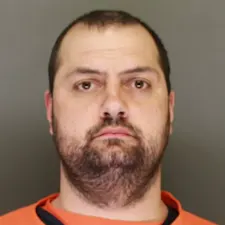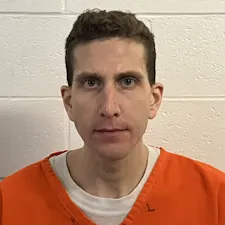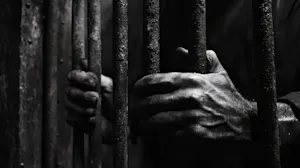
How US Open® Champion Cyril Walker Died Penniless in Prison
Cyril Walker's life story is an interesting mix of triumph and tragedy. Born in humble circumstances, he went on to claim one of golf's highest honors by winning the 1924 U.S. Open®, a victory that set him on a path to fame and fortune. Yet, this moment of glory was short-lived, as personal struggles and professional conflicts quickly overshadowed his accomplishments. Walker's eventual downfall serves as a reminder of the fragile nature of success. This is the story of Cyril Walker — the golf champion whose life ended in a jail cell, far from the fairways where he made history.
From Caddying to Competing
Cyril Walker's journey into golf was a twist of fate. Born in Manchester, England, in 1892, Walker was initially drawn to cricket and soccer, but everything changed when he stumbled upon Clayton Golf Club at age 11. There, he found work as a caddy, and soon, golf captured his interest. Walker used his earnings to buy his first set of clubs, and his natural talent became evident.
Choosing to pursue golf professionally, Walker defied expectations. He began his career in England before heading to the U.S., where he made a name for himself as a skilled golfer known for his powerful, precise swing. His reputation grew, but Walker's journey would take many unexpected turns.
An Unlikely Champion
In 1924, Walker's career reached its pinnacle when he entered the U.S. Open at Oakland Hills, a notoriously challenging course. Standing just 5 feet 6 inches and weighing barely 120 pounds, Walker faced giants like the legendary Bobby Jones. Despite his modest stature, Walker's steady performance and controlled shots helped him outplay Jones and win the tournament by three strokes.
Walker's victory earned him a gold medal and $500, as well as recognition among American golf champions. His success led to lucrative exhibition matches, endorsements, and even a syndicated column, where he advised budding golfers. But his rise was short-lived as personal struggles and conflicts soon began to overshadow his achievements.
Falling Out With the Golf Community
After his U.S. Open win, Walker's fame started to fade as his pace and temper isolated him from fellow golfers. Known for his infuriatingly slow play, Walker was often placed at the end of tournaments to avoid disrupting other players. In 1929, officials disqualified him from the Los Angeles Open after he refused to play faster, sparking a public confrontation that culminated in his removal from the course by police.
The same year, Walker's financial troubles worsened with the stock market crash. Legal troubles, including arrests for assault and drunk driving, further tainted his reputation. His family life unraveled, and Walker eventually separated from his wife and child, ending any semblance of stability.
A Life in Decline
By the 1940s, Walker's life was a shadow of its former self. He survived on low-paying caddying jobs, spending nights in Salvation Army shelters. Once dressed in fine golf attire, Walker now owned little more than a worn turtleneck and barely had enough for necessities. His reliance on alcohol grew, and his isolation deepened.
Moving to Hackensack, New Jersey, Walker took up a job as a dishwasher and lived at a local YMCA. Whatever money he earned was often used to fund his drinking, leaving him barely able to survive. The champion who once held the U.S. Open trophy had become a forgotten figure, reduced to struggling for shelter and sustenance.
An Unmarked Grave
In 1948, destitute and sickly, Walker sought shelter at a Hackensack police station on a cold, rainy night. He asked to stay in a cell to escape the chill, but the next morning, officers found him slumped over, lifeless. Walker had died from pneumonia at age 55, his once-glorious life reduced to a tragic footnote in golf history.
Walker was buried in a potter's field with no gravestone to mark his resting place — a far cry from the legacy he once envisioned. His remarkable U.S. Open win and the fame it brought him had faded from public memory, leaving his story a cautionary tale of fleeting success.
A Forgotten Champion Remembered
Cyril Walker's life, marked by an astonishing rise and heartbreaking fall, highlights the fragility of fame. He was a gifted golfer whose achievements on the course were overshadowed by personal struggles. Although he may no longer be widely remembered, his story remains a unique chapter in golf history — a testament to both the heights of triumph and the depths of human frailty.
References: A century ago, Cyril Walker won the U.S. Open. He died years later, penniless in a prison cell | The U.S. Open champion who died in a jail cell
























